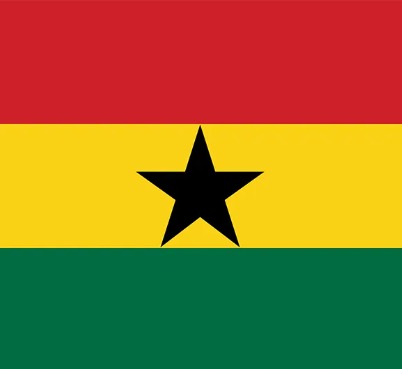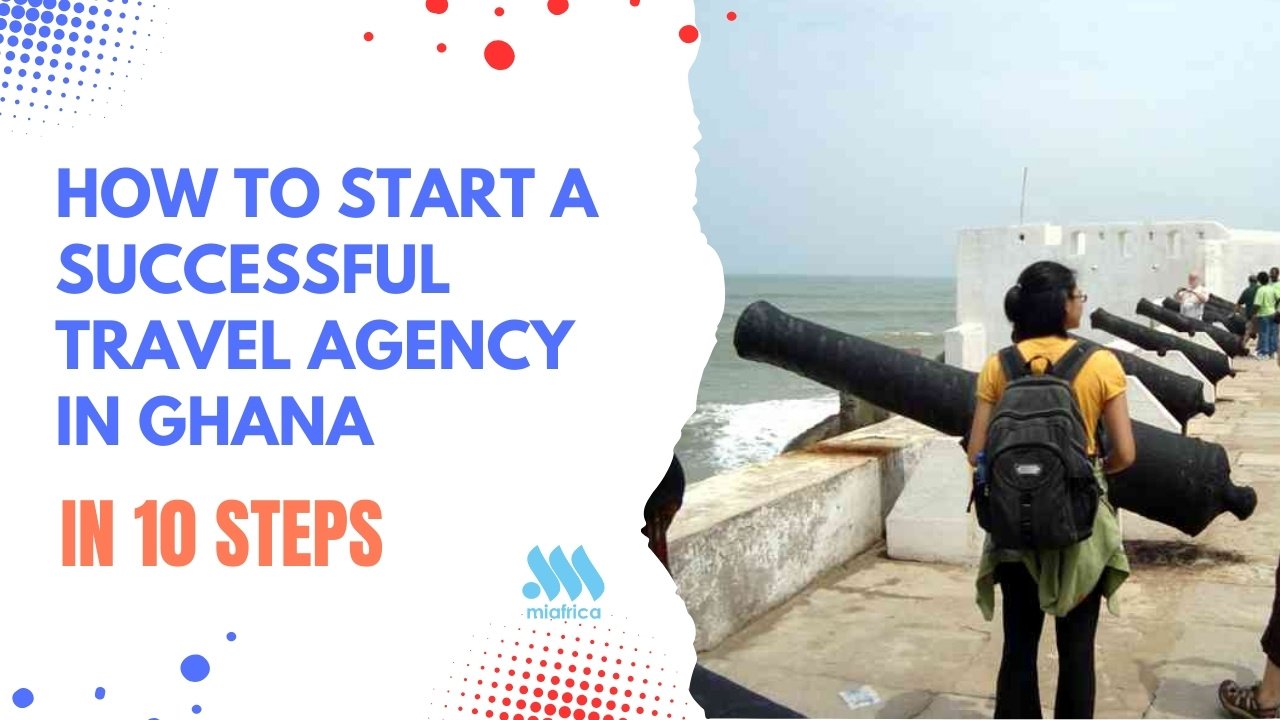I got people asking questions like “Is the travel and tour business in Ghana a good investment?” “I want to start a travel and tour business in Ghana, can you please advise me?”,
One question I ask back before sharing my thoughts is, Are you passionate about travel? Because, in my own opinion to start a business, it must always be something you are passionate about.
Ghana’s travel and tourism industry is on the rise, with a growing focus on cultural immersion, ecotourism, and adventure travel so there is no better time than now to turn your travel passion into a thriving business in Ghana.
According to recent statistics, the travel and tourism industry continues to experience steady growth, with billions of people embarking on adventures near and far each year.
But how do you transform your love for travel into a successful travel agency in Ghana? Where do you even begin? As you contemplate the exciting journey ahead, these questions may swirl up your head.
That’s why, in this little guide, I will take you through the essential steps and share some insights on how to start a travel and tour business in Ghana from scratch.
Understanding The Travel Agency Industry in Ghana
Let’s take a quick look at the travel market.
Definition of a travel agency
A travel agency is your go-to resource for all things travel and tourism. Whether they’re a private retailer or a public service, their main role is to provide a range of services to the public on behalf of the accommodation or travel suppliers.
Market research
The global online travel agent market has grown significantly, reaching nearly $460.9 billion in 2020. However, due to the COVID-19 pandemic and subsequent travel restrictions, the market experienced a decline.
But the good news is that it is bouncing back and growing at a compound annual growth rate (CAGR) of 16.1%, reaching $972.1 billion by 2025. The online travel agent market is expected to grow, reaching $1,259.1 billion by 2030. If you plan on becoming an independent travel agent, now would be the right time. 😉
Different types of travel agencies
When it comes to travel agencies, there are different types to consider.
- You have online travel agencies where everything is handled digitally, offering convenience and accessibility.
- Traditional brick-and-mortar travel agencies provide a more personal touch, allowing face-to-face interactions and personalized service.
- Then, there are hybrids, which combine online and physical elements to cater to a wide range of customers’ preferences.
The role of tech in the travel agency industry
Technology and digital platforms are pivotal in shaping the travel agency industry.
Technology has transformed how travel agencies operate and connect with their customers, from online booking systems and mobile apps to social media platforms and virtual reality experiences.
It has opened up new possibilities and enhanced the travel planning and booking experience.
ESSENTIAL SKILLS AND TRAITS FOR RUNNING A TRAVEL AGENCY
Here are the essential skills and traits you need to run a travel agency:
Importance of customer service skills
Impeccable customer service skills are a cornerstone of the travel agency industry. Building strong relationships with clients, listening to their needs, and providing personalized assistance are essential.
Going above and beyond to exceed their expectations can lead to repeat business and positive word-of-mouth recommendations.
For example, imagine a travel agent who takes the time to understand a client’s preferences and surprises them with a personalized itinerary, including their favorite activities and special surprises.
Understanding of logistics and planning
A solid understanding of logistics and planning is another key skill. Coordinating complex travel arrangements, such as flights, accommodations, transfers, and tours, requires meticulous attention.
A travel agent with expertise in logistics can effortlessly navigate the intricacies of itineraries, ensuring seamless and hassle-free travel experiences for their clients.
Knowledge of destinations and travel arrangements
In-depth knowledge of destinations and travel arrangements is a must to become a successful travel agent. This includes being well-informed about popular attractions, local customs, visa requirements, and transportation options.
This expertise enables agents to provide valuable insights and recommendations tailored to their client’s interests and preferences.
For example, picture a travel agent who shares insider tips about the best local cuisine and off-the-beaten-path attractions. This will enhance clients’ travel experiences.
Business management skills
Strong business management skills in travel agency business include financial management, marketing strategies, and operational efficiency.
Effective business management ensures the agency remains competitive, profitable, and adaptable to changing market trends.
Ability to adapt to changes in the industry
The travel landscape constantly evolves, with new technologies, travel trends, and global events impacting the industry. Travel agents who embrace innovation, stay updated on industry developments, and proactively adapt their strategies can stay ahead of the curve.
For example, a travel agent who quickly adapts to new digital platforms, such as virtual reality experiences or online booking systems, is highly likely to stay relevant in the industry.
Starting and managing a successful travel and tourism business in Ghana involves several strategic steps, ranging from understanding the market to ensuring quality service delivery. Here’s a comprehensive guide to help you get started:
10 Steps to Start And Manage a Successful Travel Business in Ghana From Scratch
1. Market Research
- Market Research: Conduct thorough research on Ghana’s tourism industry, including popular destinations, current trends, target demographics, and competitors. Identify gaps and opportunities in the market.
- Business Plan: Develop a detailed business plan outlining your business goals, target market, unique selling propositions (USPs), pricing strategy, marketing plan, and financial projections.
2. Legal Requirements and Registration
- Business Registration: Register your business with the Registrar General’s Department in Ghana. This includes choosing a business name and obtaining a Certificate of Incorporation. Some people try to bypass this process because of issues such as time and filling of forms but some agencies can assist you in getting your business registered in Ghana for a fee.
- Licenses and Permits: Obtain necessary licenses from the Ghana Tourism Authority (GTA). This may include licenses for operating a tour agency, transport services, and other tourism-related activities.
- Tax Registration: Register for tax identification with the Ghana Revenue Authority (GRA) and ensure compliance with tax regulations.
3. Establishing Services and Products
- Tour Packages: Design diverse tour packages that cater to different interests such as cultural tours, eco-tourism, adventure tours, and historical site visits.
- Accommodation and Transport: Partner with hotels, resorts, and transport providers to offer complete travel solutions. Ensure these partners maintain high standards of service.
- Guides and Staff: Hire knowledgeable and friendly tour guides. Invest in Travel and Hospitality training for your staff to ensure they provide exceptional service.
4. Building an Online Presence
- Website Development: Create a professional, user-friendly website showcasing your services, tour packages, and customer testimonials. Include an online booking system.
- Social Media Marketing: Utilize platforms like Facebook, Instagram, and Twitter to engage with potential customers, share travel stories, and promote your services.
- SEO and Content Marketing: Optimize your website for search engines and regularly publish quality content such as blogs, travel guides, and videos to attract organic traffic.
5. Marketing and Sales Strategy
- Partnerships: Collaborate with international travel agencies, airlines, and tourism boards to attract foreign tourists.
- Promotions and Discounts: Offer special promotions, early-bird discounts, and group travel deals to attract more customers.
- Local Advertising: Advertise in local newspapers, travel magazines, and on radio stations. Participate in travel and tourism fairs.
6. Customer Service and Experience
- Personalized Services: Provide personalized travel experiences based on customer preferences and feedback.
- Customer Support: Offer 24/7 customer support to assist with inquiries and emergencies.
- Feedback and Improvement: Collect feedback from customers and continuously improve your services based on their suggestions.
7. Managing Finances
- Accounting System: Implement a robust accounting system to track income, expenses, and profits.
- Budgeting: Create and stick to a budget. Plan for both short-term and long-term financial goals.
- Funding and Investment: Explore funding options such as bank loans, grants, or partnerships to expand your business.
8. Networking and Community Involvement
- Industry Associations: Join industry associations like the Ghana Tourism Federation (GHATOF) to network with other professionals and stay updated on industry developments.
- Community Engagement: Engage with local communities and support local businesses to build a positive reputation and contribute to sustainable tourism.
9. Adapting to Changes
- Stay Informed: Keep up with global and local travel trends, economic changes, and health regulations (e.g., post-pandemic travel protocols).
- Flexibility: Be prepared to adapt your business model and services to meet changing market demands and challenges.
10. Monitoring and Evaluation
- Performance Metrics: Track key performance indicators (KPIs) such as customer satisfaction, repeat bookings, and revenue growth.
- Regular Reviews: Conduct regular business reviews to assess performance and make strategic adjustments.
By following these steps and focusing on providing exceptional customer experiences, you can establish and grow a successful travel and tourism business in Ghana.
You can also skip all the steps above and start your dream travel and tour business with Miafrica for free.

Free Travel Business Startup Pack
Launch Your Dream African Travel & Tour Business – Zero Cost Startup!









0 Comments